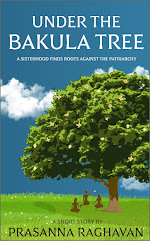Finding A Mysterious Jewellery Box in my Garden
 |
| The image was taken from Google.com |
Who doesn't dream about finding a mysterious jewelry box in your garden? Is anything wrong with that and hoping for windfalls in life, like digging out a treasure trove hidden in the cellar of your home, winning a jackpot, or millions in a lottery? There is a special fulfillment in finding things free without any effort. This is true with several people, irrespective of the time they live.
However, it may pause a question or a dilemma for some people. Can you take the content of a jewelry box you found in your yard as your own? See, you haven't put any effort into it! Why not? You found it under your cellar or your garden, and you have dug it out. It is your destiny, and you got it because you are the chosen one, all your life, you have been appealing to the superpowers to make you rich. Now, your prayers got answered in the form of a jewelry box or a treasure box.
It's an age-old concept that your prayers get answered provided you're god-fearing and not a sinner! The superpowers are always on the watch out for good people and reward them with the blessings of such windfalls. There is no question of whether you earned it through your labour, and after all begging for superpowers is an act of noble labour.
The Influence of the Krishna-Kuchela Story
Now, what about the story of Krishna-Kuchela, illustrated and glorified in the Bhagavata, a sacred book on the spiritual path of life.
It goes like this- Kuchela and God Krishna were close classmates in their school days. In the days of the traditional gurukul school system, learners lived with teachers sharing their life experiences, gaining knowledge through cooperation, finding meaning in a classless society, and celebrating simplicity, equality, and dignity.
Kuchela, in his adult life, was a very learned person, turned poor, unable to feed his family. Day in and out, he listened to the degrading experiences of his family drenched in sadness and sorrow.
His wife pleaded with him to approach his classmate Krishna flourishing in royalty, richness, fame, luxury, and power, and beg for assistance. After a long-time hesitation, Kuchela listened to his wife and set off to see his bosom friend in a mix of emotions.
Contrary to his suspicion, his friend Krishna welcomed him and embraced his body covered in a film of threadbare wraps. He accepted his pathetic gift, beaten rice wrapped in a wrap of dirty cloth. And at that very moment, Kuchela's impoverished homestead turned into a palatial bungalow decked with all the luxury and consumer items. On his return, Kuchela couldn't recognize the palace in the place of his hut. What a great windfallen treasure for him. Thereafter, Kuchela lived in luxury and comfort ever after.
I haven't read the holy book but have listened to my mother recites it. Have heard the Kuchela stories from her and learned in school and watched its two screen versions.
Reading new books and listening to different stories help you to change your perspectives.
Mysterious Treasure Troves and Consumerism
Kuchela was a Brahmin who lived long before the type climbed the social ladder to wield power over the rest of the population. Kuchela represented the wealth of knowledge and value system when the land was for people's use and not turned into a commodity of ownership.
The land got used for cultivation for the common good of the people in the community. Kuchela received his ration of consumable items from those who laboured in the soil, and in return, he imparted knowledge and a value system for the common good. This traditional value system owes to the Buddhist economy.
Then the system of economy of the nation changed. Land ownership went to the blessed ones who designed and climbed up the social ladder, degrading labour. The labour class lost the land and expertise, and society slowly lost the traditional value system.
Labour got downgraded, money and consumption became the priority of human life and the attitude towards gaining windfallen stuff in the form of mysterious Jewellery boxes and treasure troves got normalized. This is akin to the modern (Western market economy now turned global) where consumption got prioritized against expertise, labor dignity, and living simply.
When I was a child, the theme of the stories my grandma told me, and other children were infused with the old order value system-the life of those after greed and windfalls ending up in loss and miseries. The characters invariably get a treasure trove hidden inside their home or the garden. They then shift towards a consumerist lifestyle, reneging the value systems, oppressing others, turning into cruel, violent criminals, losing everything, and ending up in jails or turning beggars. The stories purported the moral of warning against windfallen Jewellery boxes.
Conclusion:
Grandma's stories had germinated in my mind caution against gaining the windfallen treasure troves in the form of Jewellery boxes in your garden. So, finding a mysterious treasure in my garden, I treat it with caution.
Those who are interested to know about Buddhist Economics, please read here.
***
This is a post written for the writing challenge Blog A Chatter Blog Hop. #BlogAChatterBlogHop







0 comments
Post a Comment